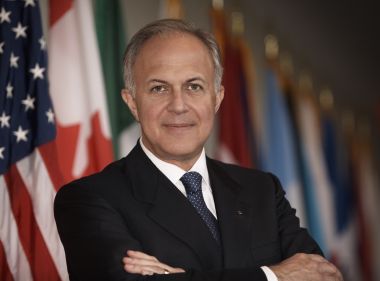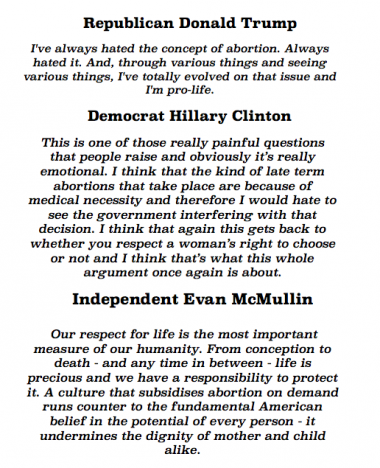Why Do Politicians Ignore What The Public Really Thinks About Abortion?

Politicians in the United States should no longer ignore a public "consensus" on abortion, a leading Christian has argued.
Carl Anderson, Supreme Knight of the Knights of Columbus, a Christian charity that raises funds to help those in need, said that if America's politicians had the courage to act on the consensus that already exists on the issue of abortion, the number of abortions in the United States could be greatly reduced.
Speaking after receiving the Great Defender of Life Award at the Human Life Review dinner in New York, Anderson acknowledged that for decades it was assumed that the pro-life position was a minority view.
He cited prominent politicians like New York Governor Mario Cuomo who admitted that he was "personally opposed" to abortion but did not believe he should impose his view on the majority of Americans.
Anderson said research showed the vast majority of Americans in fact woud support more abortion restrictions.
According to Marist polling commissioned by the Knights of Columbus, eight in ten Americans support "substantial restrictions" on abortion.
A solid majority would limit abortion to cases of rape, incest or to save the life of the mother, or would not allow it at all.
Just one in 10 Americans say they would prefer no restrictions on abortion. And by a margin of 23 points — 60 percent to 37 percent — most Americans now say abortion is "morally wrong".
Anderson said: "Instead of embracing this consensus, we see too many politicians, including some who are Catholic, embracing ever more radical — and unpopular — positions."
He added: "Most Americans today agree that abortion is morally wrong, and huge majorities want restrictions on abortion.

"If Catholics were to stand together with other people who support life to make abortion the preeminent human rights issue of our time and to treat it as a truly non-negotiable priority, imagine how different our country would be."
Anderson became active in the pro-life cause in the 1970s when he was in college.
Since then, he has campaigned on pro-life causes alongside Mother Teresa of Calcutta and Pope John Paul II, both canonised after their deaths, and public servants such as Jim Buckley and Ronald Reagan.
Anderson said that during this election campaign, voters have been told that poverty, inequality and peace are key themes.
He quoted Mother Theresa's speech to Harvard's graduates in 1982 when she said the poorest of the poor weren't in the slums of India. Instead, she said, abortion was "one of the greatest poverties." She added: "A nation, people, family that allows that, that accepts that, they are the poorest of the poor."
Anderson continued: "How much of the violence we see today, and how much of the coarsening of our culture is the result of a legal system and way of thinking that says some lives don't matter—that some human beings have no rights at all.
"We confront this greatest of poverties because our country has legally embraced what theologians might call 'a structural sin', namely a legal system that denies the humanity of the unborn, and allows their innocent lives to be destroyed.
"There are many threats to life in this country. All are to be resisted, but none comes close qualitatively or quantitatively to the devastation of abortion – the legal regime that has resulted in the intentional deaths of 50 million innocent human beings."
Anderson said he had not endorsed any candidate in any of this year's elections, but he has argued that no candidate who supports abortion and opposes abortion restrictions should be supported.
"When confronting the greatest poverty in the world, the number one cause of death in our country, the greatest destroyer of peace, the cornerstone of violence, and the denial of human rights to an entire class of people, and which has resulted in death on such a massive scale, I do not see how it is even remotely possible to build a culture of life and a just society by electing people who defend such a regime."











